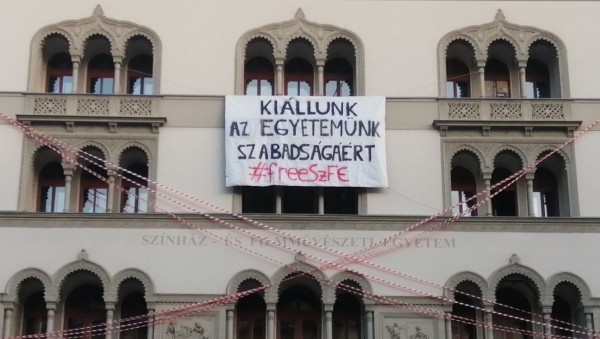1. In September 2016 the vice-chair of the Parliamentary Committee on National Security Szilárd Németh stated that he had asked for the organisations cooperating with the Soros-network, including Eötvös Károly Public Policy Institute, to be fully vetted. Some months later he informed the public that the screening had been accomplished and the national security services had reported their findings to the Parliamentary Committee on National Security.
These statements can be considered a watershed: previously, keeping the very fact of secret information gathering a secret could have been justified by reference to the smooth functioning of the national security services. Now that the veil has been lifted by the ruling party member vice-chair of the Committee on National Security, there can be no more secrets to be protected by referring to national security reasons.
2. According to legal rules in force, secret information gathering for national security purposes can be ordered upon ministerial decision, no judicial decision is needed. There is no procedural guarantee that would prevent the government from using the instrument of secret information gathering for its own political purposes. That the law gives a leeway to abuse will become absolutely clear if our request yields the finding that EKINT has been subject to secret information gathering.
There can be two reasons for conducting secret information gathering: 1) to uncover a concrete crime – this is regulated by the police act and is bound by a judicial decision(1), 2) based on vaguely defined national security considerations, upon the authorisation of the Minister of Justice. (2) Related to the latter, it has become clear in the case of Szabó and Vissy v. Hungary filed by EKINT that the lack of judicial control does not comply with European standards of the rule of law and it poses a danger to privacy.
3. The political objectives of the government are clear and the news on EKINT’s screening fits the government propaganda.
It was only a few days before the quota referendum of 3 October 2016 that Szilárd Németh declared war on civil society. It was already visible that the government was preparing a new screenplay in case the hate campaign against refugees was unsuccessful: it started to channel incited anger against a new target, namely civil society. Some weeks later the government released its legislation schedule for the spring term of 2017 in which the “transparency of civil organisations” was included. On 7 April ruling party MPs, including Szilárd Németh, handed in bill T/14967 on “the transparency of foreign funded organisations”. EKINT was consistently being mentioned as a “non-transparent NGO” in government communication, which served as a reason for submitting the bill. The Ministry has 15 days to answer EKINT’s data disclosure request.
(1) Article 7/E(2) of Act 34 of 1994 on the Police.
(2) Article 7/E(3) of the Police Act.
(3) You can read more on this case here.
Source of image: 444.hu






